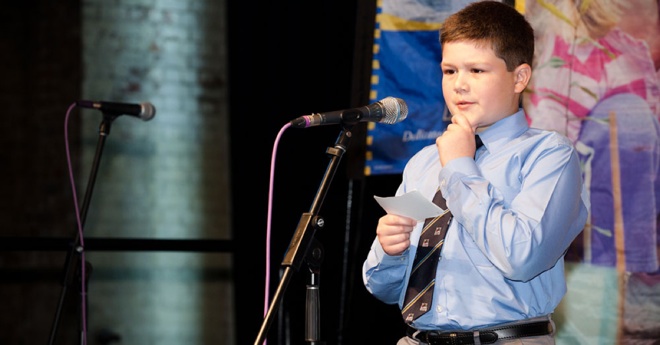‘Poner’ is one of a small list of Spanish verbs with a huge assortment of common uses. There are 28 uses for “poner” listed in my Spanish to Spanish dictionary.
Some uses of ‘poner’ are more frequent than others. In today’s podcast, I will look a few of the most useful contexts for this common verb.
Like many words in the Spanish language there are more situations to use ‘poner’ than you can poke a stick at. But clichéd introductions aside.
It is a really useful verb and sometimes if you want to get to conversational level of Spanish it is worth slowing down to speed up. That means dissecting one word at a time. Becoming really comfortable with just one word’s uses inside and out. And then moving on.
Sometimes, it is better to go 5 miles deep and 1 inch wide than 1 inch deep and 5 miles wide. Wow, I’m really in a cliché mood today. But, hopefully the point is clear. Being conversational in Spanish means knowing a few common words really well than a lot of less frequent words poorly.
Examples from today’s podcast:
She puts the clothes on the shelf – Ella pone la ropa en la estantería.
I thought I put my keys on the table – Pensaba que puse las llaves en la mesa.
Get me a beer – Ponme una cerveza.
Get me a beer, please – Ponme una cerveza, por favor.
Get me a tortilla, please – Ponme una tortilla, por favor.
It makes me happy – Me alegro.
It makes me happy (content) – Me pone contento.
It makes me happy to spend time with my friends – Me pone contento pasar tiempo con mis amigos.
They make me sad – Me ponen triste.
Always the end of the year (New Years Eves) makes me sad – Siempre los fines de año me ponen triste.
It makes me very nervous to fly during a big storm – Me pone muy nervioso viajar en avión durante una tormenta grande.
It makes me nervous to speak in public – Me pone nervioso hablar en público.
Does it make your nervous to speak in public? – ¿Te pone nervioso hablar en público?

It puts me in a good mood – Me pone de buen humor.
When I see your smile, it always puts me in a good mood – Cuando veo tu sonrisa siempre me pone de buen humor.
It puts me in a bad mood – Me pone de mal humor.
It puts me in a bad mood when I have to work late – Me pone de mal humor cuando tengo que trabajar tarde.
You make me nervous with so many questions – Me pones nervioso con tanta pregunta.
To cheat on someone – Poner los cuernos.
I think that my girlfriend is cheating on me – Creo que mi novia me está poniendo los cuernos.
Other episdoes mentioned in this podcast:
Quote for today:
“Tener un secreto tan gordo dentro de mi cerebro me ponía muy nervioso.” – Elvira Lindo (Manoito Gafotas)
How else can you use “poner” in a conversation?
Podcast: Play in new window




Would ponme, me pone, and pongame be interchangeable, or are there subtle differences?
Hey Alan, there are a few subtle differences. Your examples can change context slightly depending on the sentence you plan to use them in. “Ponme” is an informal command and
“pongame” is a formal command. These can sort of be used interchangeably, it depends on your relationship with the person you are speaking to.
“Me pone” could be “It puts me…”, “That puts me…”, “He puts me…” or “She puts me…”. “Me pone” is not a command in this context. It is an observation, statement or question.
Check out http://www.123teachme.com/spanish_verb_conjugation/poner.
(Look under the imperative section for commands)
This website is my favourite Spanish verb conjugation tool. For all of the most common verbs, it gives you a list of their conjugations for structure in an easy to read table. It highlights the
irregular forms in blue. And it provides a few examples of how to use the different structures below the table.
Thanks, that’s much clearer. I think that doing a deep dive on one verb is a great idea, and I’lol definitely do this. I may start with a regular verb though, then come back to poner.
¡De nada! Keep up the good work.
¿Qué significa (Tú me pones) solo sin un palabra después?
Hola Nour, I’m sorry I don’t quite understand your question, the word “sin” has confused me. Do you mean with or without a word after? Can you give me an example of a sentence you are trying to understand?
Porque dice tanta pregunta en vez de tantas preguntas?
Hola Lisa, what’s wrong with “tanta pregunta”?
Why do you use the singular “tanta pregunta” when “so many questions” imply the plural “tantas preguntas”?
Hola Adrian, a really great way to think about this problem is to reverse it. If we can say “Me pones nervioso con tanta pregunta” in Spanish, why don’t we say “You make me nervous with so many question” in English?”. Part of being able to think in Spanish is acknowledging the rules of English don’t apply to Spanish and vice versa. And if the phrase “con tanta pregunta” is perfectly fine in Spanish, how should we think about this in English?